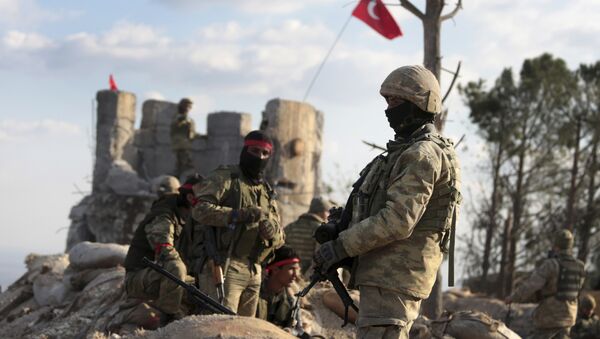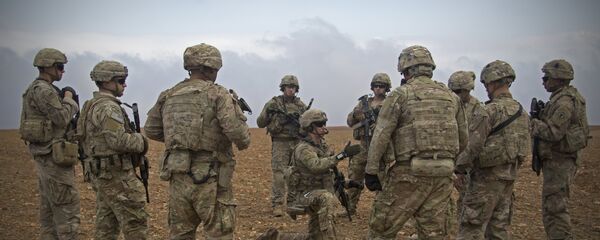By mentioning the Adana Treaty — the 1998 Syrian-Turkish security agreement which eased tensions between the neighbours — President Putin opened a window of opportunity for Ankara to re-establish ties with Damascus, Faruk Logoglu, a former deputy foreign minister and ex-Turkish ambassador to the US, told Sputnik, commenting on the Russian president's 23 January talks with Recep Tayyip Erdogan in Moscow.
Although Turkey is not yet ready to launch a full-fledged dialogue with Syria, the former diplomat recalled that Turkish Foreign Minister Mevlut Cavusoglu previously noted that Turkey had maintained indirect contacts with Syrian authorities. According to Logoglu, this indicates, at least, that there is interaction between the intelligence structures of the two countries.
"If the revitalisation of the Adana Treaty bears fruit, it will manifest itself in the establishment of contacts between Ankara and Damascus at the highest level," the politician presumed, expressing confidence that the Turkish leadership had paid attention to Putin's reference.
"Turkey and Syria should step up cooperation in combating terrorism within the framework of this agreement," Oymen pointed out. "Eliminating the terror threat is primarily the task of the authorities of the country. If terrorists — be it Daesh (ISIS/ISIL)*, or the Democratic Union Party (PYD), or the Kurdistan Workers' Party (PKK), or al-Nusra Front* — are operating in Syria, then it is the responsibility of the Syrian leadership to fight against it".
Oymen underscored that the UN Charter's principles of national sovereignty and non-interference remain the cornerstone of a state policy, adding that currently almost 33 per cent of the Syrian territory is "occupied" by the PYD and its affiliates.
"This is an open violation of international law. Other territories are controlled by other forces, for example, in Idlib… In order to resolve this situation, it is necessary to refer to the agreements concluded earlier", the former envoy said, referring to the Adana Treaty in particular.
He noted that dialogue within the framework of the treaty could be launched either directly or with the assistance of a third party.
"The fight against terrorism is usually seen from the military point of view while the diplomatic aspect remains neglected," Oymen said. "The implementation of the Treaty of Adana can show that the proper use of diplomatic tools can deliver a significant result without the use of military force".
Damascus is Holding Talks With YPG
According to Usef, Turkey is therefore interested in referring to the Adana Treaty in order to be able to chase PKK members 5 kilometres deep into Syrian territory.
"I believe that finally Damascus and Ankara will establish cooperation to fight against the PKK," he presumed. "It is the [PKK] who influence the [YPG] detachments and prevent them from establishing a dialogue with official Damascus. As a result, we can see the Syrian-Turkish rapprochement".
In 1998, Ankara and Damascus signed the Adana agreement to jointly fight against terrorism. In accordance with the treaty, several bases and training camps of the PKK (which is considered a terrorist organisation, along with the PYD and YPG, in Turkey) were closed in Syria, while the accounts of its functionaries were blocked.
In accordance with the agreement, the parties agreed to prevent the activities of terrorist organisations, primarily the PKK and its branches, which threaten regional security and stability.
If neither party expresses its willingness to terminate the agreement, it renews itself automatically every three years. Neither Ankara nor Damascus have officially declared their intention to withdraw from the treaty so far.
The views and opinions expressed by the speakers do not necessarily reflect those of Sputnik.
*Daesh (ISIS/ISIL/Islamic State), al-Nusra Front are terrorist groups banned in Russia.





